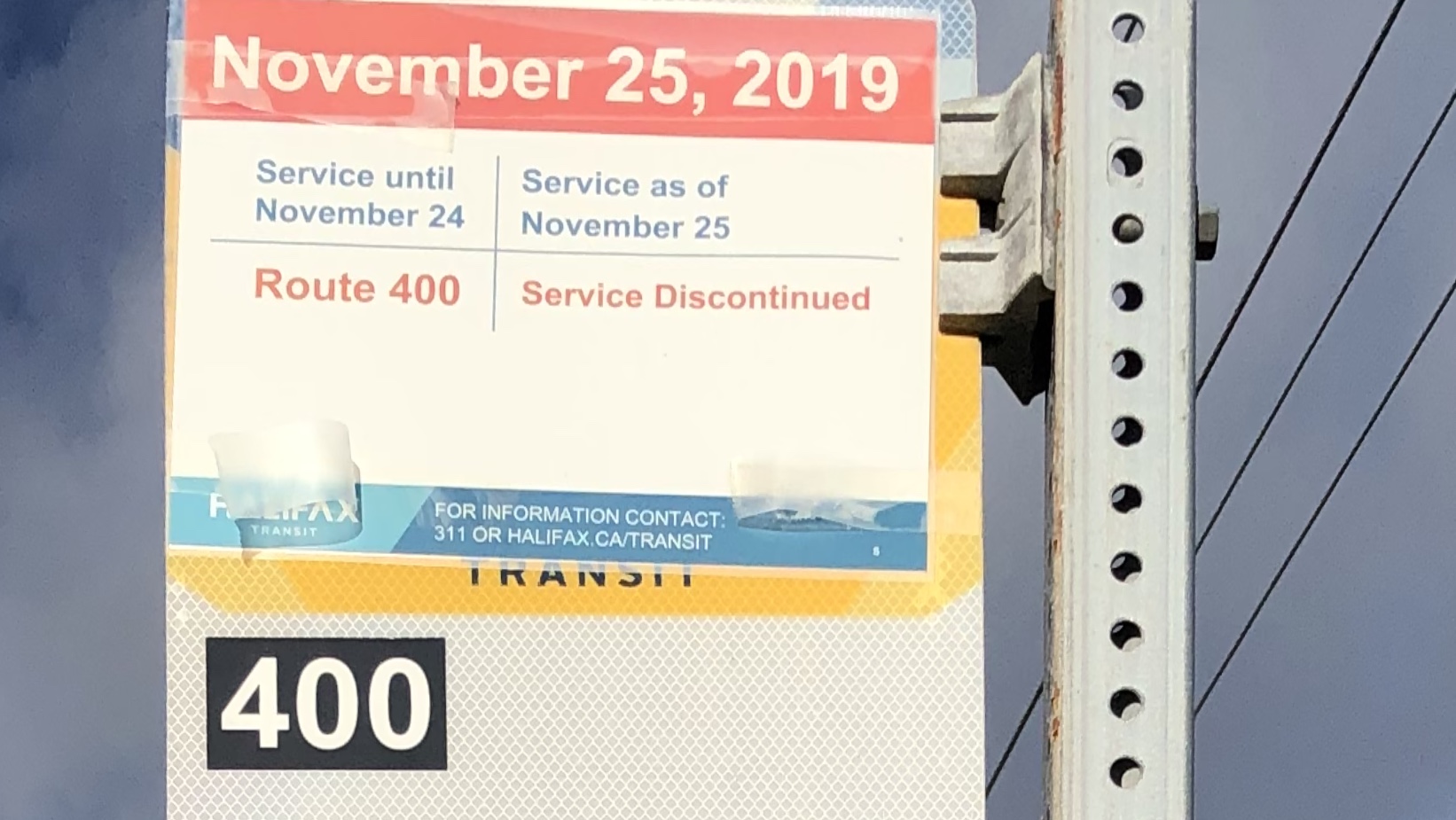North Beaver Bank paid taxes for a bus they won’t have
Residents upset they still pay for transit, despite service loss on Nov. 25

caption
A bus stop in North Beaver Bank.The bus to Beaver Bank will no longer go by Darlene MacDonald’s house as of Monday, but the property taxes she paid in October mean she still pays for transit for the rest of the tax year.
MacDonald said she is “really upset” at having paid for a bus Halifax Transit is eliminating.
“If you lose your services, why do you have to continue paying it?” she said.
Halifax Transit considers a person served by the bus system if they live within one kilometre of a bus stop. Those that live within this perimeter pay a transit fee on their property taxes. Related stories
Beaver Bank residents upset with transit changes
Transit fees cover bus service for the entire tax year, and apply if the bus route is active for most of this time. Andre MacNeil, senior financial consultant for the city, said the fee homeowners paid in October pays for transit until the end of March (the end of the fiscal year.)
As a result, North Beaver Bank residents pay for a full year of transit, despite only having the bus for eight months of the current tax year.
On Nov. 25, the current bus to Beaver Bank, the 400, will be replaced by the 86 and 186. These new routes will stop at the Beaver Bank Kinsac Community Centre, cutting the current route short by over six kilometres.
Melissa Walton, another North Beaver Bank resident, said she paid around $300 in transit fees in October. She wasn’t happy to learn she had to pay for a bus that stops running a month after the bill’s due date.
“You don’t have to pay an Eastlink bill if you don’t have their services,” said Walton. “You don’t pay for Nova Scotia Power if you don’t have their services. What makes any difference with transit?”
Who does and who doesn’t pay transit fees every year is decided by Halifax’s finance and mapping departments, according to the municipality. Every year, Halifax Transit sends a file of the updated bus stops to finance and mapping. These departments decide which properties remain within one kilometre.
Lisa Blackburn, councillor for the Beaver Bank area, was not fully aware of how transit taxes are decided until speaking with The Signal.
“From a taxpayer and representative point of view, it hardly seems fair,” she said.
Blackburn thinks it should be possible to calculate transit fees on a monthly basis. If you only have transit service for eight months, she said, the municipality should only charge you for those eight months.
Andre MacNeil said that could be possible, but it would be “quite a complicated scheme of tax payment.”
Halifax Transit is able to change services four times a year: February, May, August and November. MacNeil said it would be difficult to change people’s taxes four times a year.
While Blackburn is unsure if there’s anything at the regional council level she can do about transit fees, she plans on looking into the issue.
“Certainly, it raises a bit of a red flag for me,” she said.
About the author
Kristin Gardiner
Kristin is a Prince Edward Islander currently working in Halifax. Her journalistic interests lie in copy editing and longform features.

K
Kenneth